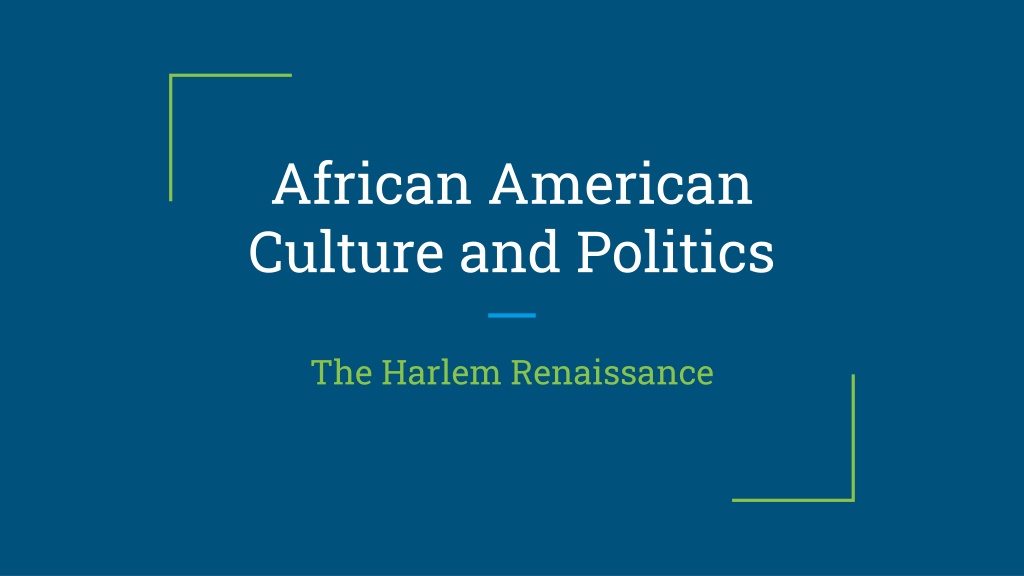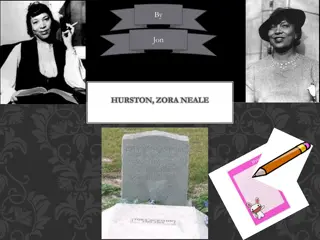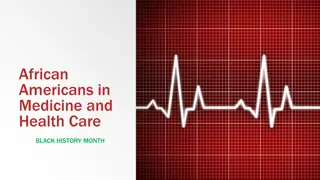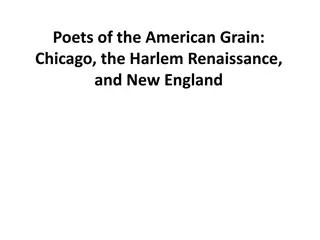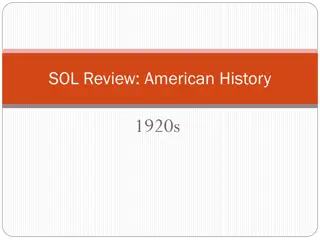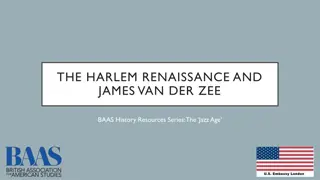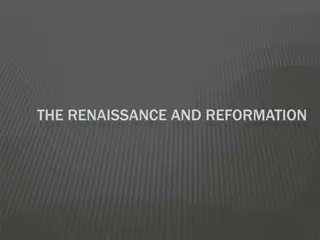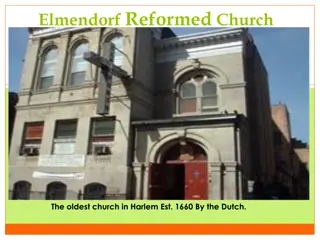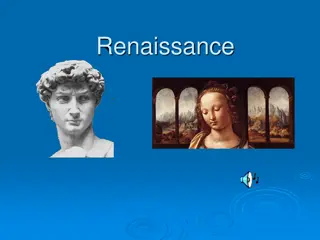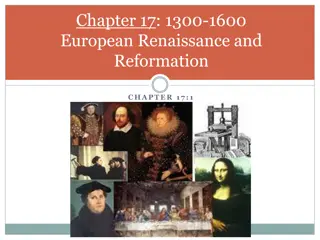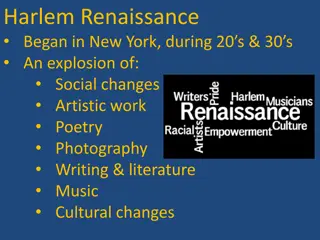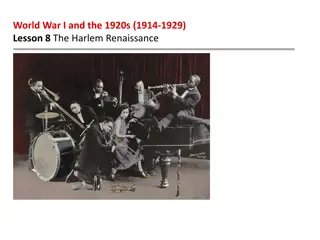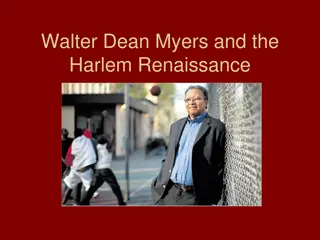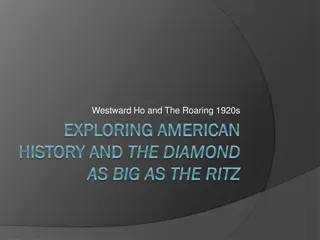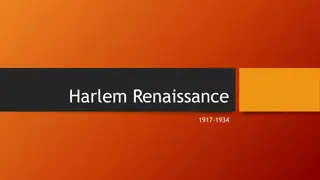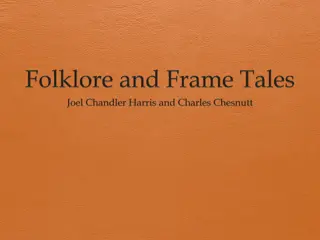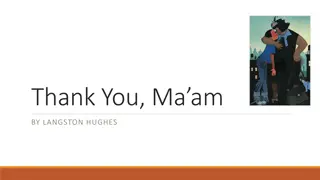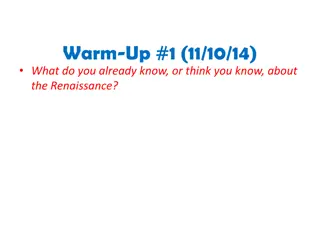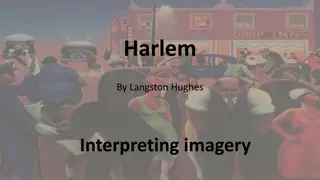African American Culture and Politics: The Harlem Renaissance
The Harlem Renaissance was a cultural and political movement that emerged during the Great Migration, leading to a flourishing of African American populations in Harlem. Notable writers like Claude McKay and Langston Hughes, along with Zora Neale Hurston, played pivotal roles in shaping the movement through their works. Jazz, blues, and theater thrived in venues like the Cotton Club, with iconic figures such as Louis Armstrong and Duke Ellington making significant contributions.
Download Presentation

Please find below an Image/Link to download the presentation.
The content on the website is provided AS IS for your information and personal use only. It may not be sold, licensed, or shared on other websites without obtaining consent from the author. Download presentation by click this link. If you encounter any issues during the download, it is possible that the publisher has removed the file from their server.
E N D
Presentation Transcript
African American Culture and Politics The Harlem Renaissance
The Harlem Renaissance The Great Migration led to a swell in African American populations in the North Many moved to the New York City neighborhood of Harlem Nightclubs and music filled the cities Became known as the Harlem Renaissance
Writers Claude McKay First important writer of the Harlem Renaissance Harlem Shadows -poetry collection that expressed a proud defiance and bitter contempt for racism
Writers Langston Hughes Versatile writer Became a leading voice for the African American experience in America
I, Too I, too, sing America. "Eat in the kitchen," Then. I am the darker brother. They send me to eat in the kitchen When company comes, But I laugh, And eat well, And grow strong. Besides, They'll see how beautiful I am And be ashamed-- I, too, am America. Tomorrow, I'll be at the table When company comes. Nobody'll dare Say to me, Langston Hughes
Writers Zora Neale Hurston Wrote stories featuring African American women as central characters Short stories, plays, and essays Their Eyes Were Watching God
Jazz, Blues, and Theater The Cotton Club was a nightclub where many musicians and actors got their start Only served white customers
Louis Armstrong New Orleans native Was one of the key founders of jazz Improvised Broke away from groups and played imaginative solos
Louis Armstrong Louis Armstrong - La Vie En Rose Louis Armstrong (August 4, 1901 -- July 6, 1971), nicknamed Satchmo or Pops, was an American jazz trumpeter and singer from New Orleans, Louisiana. New technology such as stereo enhancement and digital remastering have been used to preserve and reconstruct rare recordings that would otherwise have been lost.
Edward Duke Ellington Got his start in the Cotton Club Mixture of sounds and combinations of instruments Everything, and I repeat, everything had to swing. And that was just it, those cats really had it; they had that soul. and you know you can t just play some of this music without soul. Soul is very important.
Bessie Smith Symbolized soul Known as the Empress of the Blues Sang of unfulfilled love, poverty, and oppression classic themes of the blues
Bettie Smith -Empress of the Blues Bessie Smith (Nobody Knows You When You're Down And Out, 1929) Jazz Legend http://www.ragtimeguitare.com/ Complete ragtime, jazz blues guitar repertoire. Nobody Knows You When You're Down And Out (1929) Bessie Smith (Vocal) Ed Allen (Cornet) Garvin Bushell (as) Greely Walton or Arville Harris (ts) Clarence Williams (Piano) Cyrus St-Clair (tu)
Josephine Baker Transformed her childhood knack for flamboyance into a career as a well known singer and dancer on Broadway She later moved to Paris
African Americans and 1920s politics In 1919 about 1,500 African American vets marched through Manhattan to Harlem W.E.B. DuBois gave a defiant speech: We return. We return from fighting. We return fighting. Make way for democracy! We saved it in France and by Great Jehovah, we will save it in the United States of America, or know the reason why!
Oscar DePriest 1928 African Americans helped elect Oscar DePriest First African American representative in Congress Showed that African Americans were a powerful voting bloc and could sway elections
Oscar DePriest "I've been elected to Congress the same way as any other member," he said. "I'm going to have the rights of every other Congressman, no more, no less, if it's in the Congressional barber shop or at a White House tea."
NAACP Battles against segregation and discrimination Worked to pass legislation against lynching Dyer Anti- Lynching Bill Got it passed in the House of Representatives in 1922 Senate defeated the bill Continued protests which reduced the number of lynchings
The Dyer Anti-Lynching Bill The Dyer Bill defined lynching as follows: The phrase mob or riotous assemblage, when used in this act, shall mean an assemblage composed of three or more acting in concert for the purpose of depriving any person of his life without the authority of law as a punishment for or to prevent the commission of some actual or supposed public offense. The opponents articulated arguments based on the historic relationship of state, local, and federal authority. They cited the traditional role of local authorities to retain jurisdiction to enforce state criminal statutes and opposed federal intrusion into this area. They did not address proponents arguments that local authorities, in allowing lynching, had abdicated their constitutional enforcement duties. http://www.blackpast.org/aah/dyer-anti-lynching-bill-1922#sthash.O1g55d85.dpuf
Black Nationalism and Marcus Garvey Marcus Garvey was from Jamaica Believed African Americans could gain economic and political power through education Told his followers they would never gain justice and freedom in America so they should go to Africa Convicted of mail fraud, jailed then deported Instilled a sense of pride and hope for the future
Lets Review How did African American leaders differ in their approaches to political actions during this decade? What does the work of writers and performers of the Harlem Renaissance show about African American culture of the 1920s? W.E.B. DuBois, NAACP, Marcus Garvey
